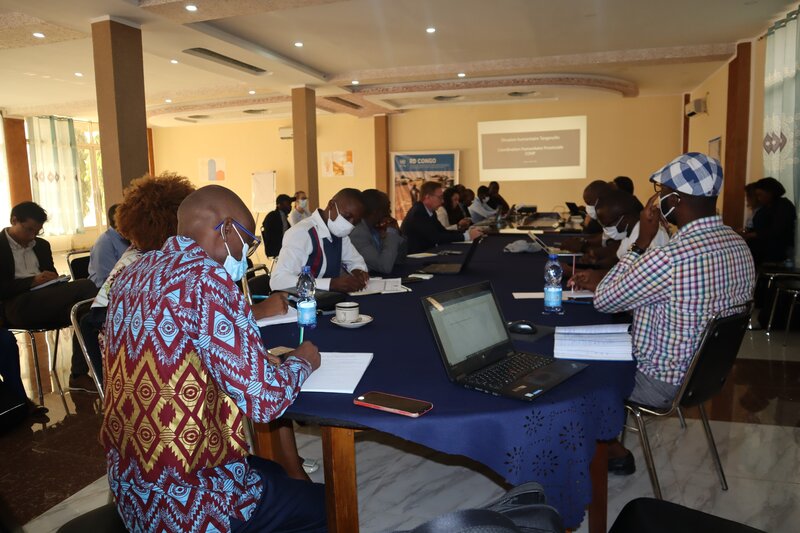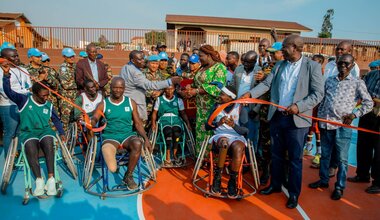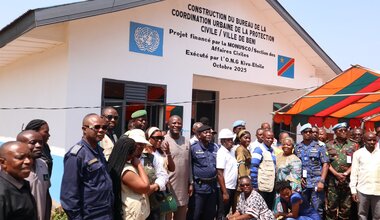Tanganyika: MONUSCO hands over to UN programs, funds and agencies
June 30, 2022 marks the end of MONUSCO's operations in Tanganyika Province. Although the Mission will maintain a presence in the north of the province, particularly in Nyunzu and Kalemie territories, where there are still pockets of insecurity, in the four territories where the security situation has clearly improved, it will hand over the baton to United Nations agencies, funds and programs.
The latter will have to apply the Nexus approach, which consists in working with local partners, including the provincial government, civil society and even private partners, in order to resolve the problems at the root of the humanitarian crises and pave the way for the province's development.
The humanitarian community, along with its local partners, thus gathered on June 20 at the United Nations Humanitarian Coordination Office (OCHA) in Kalemie, to assess the humanitarian situation in Tanganyika province.
For Joseph Inganji, representative of the United Nations Humanitarian Coordination Office (OCHA) in the DRC, while the security situation has improved relatively in the province, the humanitarian situation remains of concern. "There are still many people who need assistance. There are still IDP sites with populations that need assistance. That's why we need to see how we can work without MONUSCO," he explained.

According to him, it is time to apply the Nexus approach to work on the recovery of the province. "We will work together, the humanitarians, the development [agencies], the government. We are going to sit around a table to see what we need to do together and then each of us will contribute according to its mandate," he said.
It is also an opportunity, he added, to involve local organizations and build their capacity, so that when the time comes, they can take over. "We, of the United Nations, will leave at some point. But the national NGOs will stay. As far as humanitarian actions are concerned, it is the national NGOs that will be able to respond to the residual humanitarian problems, together with the local authorities, when we leave," he added.
Joseph Inganji assures that the humanitarian community is working to support local NGOs and help them take the lead with the government in responding to humanitarian needs. A meeting with these NGOs is planned in the near future to exchange with them and understand how to help them in this regard.
Finally, the head of Ocha in the DRC recalled that the role of humanitarian coordination is to assist the government and not to compete with it. "That is why we need to discuss and put strategies together. We expect leadership from the government. They have to tell us: this is what we are going to do, these are the strategies we are going to put in place. It is the government that must define the strategies and we will support these strategies," he explained.
With the withdrawal of MONUSCO, the United Nations intends to strengthen the presence and role of its agencies, funds and programs in Tanganyika province. The objective is to carry out both humanitarian and development actions, in order to support the recovery of this post-conflict province.

 UN
UN United Nations Peacekeeping
United Nations Peacekeeping






